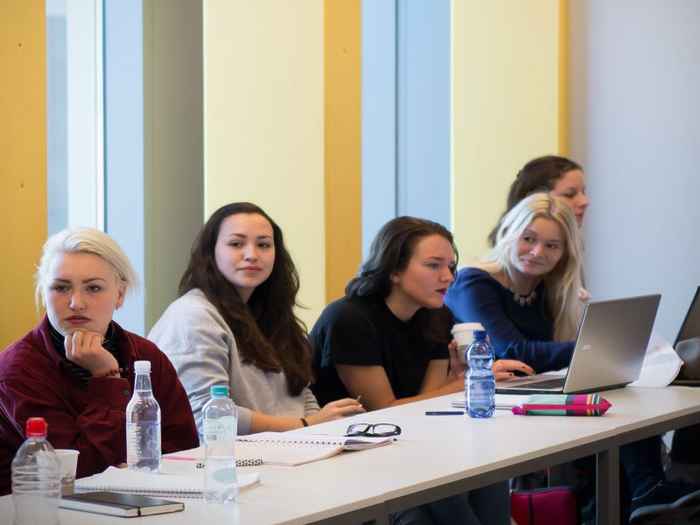The Dutch way of education
Many European educational systems require from students a high level of individual responsibility and initiative. Developing an independent and critical way of thinking is strongly encouraged. This academic environment will be part of the challenge for students pursuing a degree at the UvA.
Grading
The Dutch grading system scale ranges from 1 to 10:
| 8 - 10 | excellent |
| 7.5 - 8 | very good |
| 7 - 7.5 | good |
| 6 - 7 | satisfactory |
| 5.5 - 6 | sufficient |
| less than 5.5 |
fail |
Evaluation is based on one or more of the following methods: class participation, oral presentations, assignments, final papers, and final exams.
Credits
When students successfully complete a course, they receive credits which are listed on their transcript. Most courses are worth 6 or 12 ECTS (European Credits). A full-time programme requires that students complete 60 credits per academic year (30 credits per semester), corresponding to 1680 hours of study.
Semesters are composed of self-contained units called courses. Credits are awarded to students who have succesfully completed a course. Most courses are worth 6 or 12 ECTS (European Credits), in keeping with the European Credit Transfer and Accumulation System (ECTS). 1 ECTS credit represents 25 to 30 hours of study (including class attendance).
Dutch educational style
The teaching style can be described as interactive and student-centred. This style provides students with the attention and freedom they need in order to develop their own opinions and creativity.
Teamwork and self-study
A large part of all study programmes is dedicated to writing papers and working in groups with your fellow students to learn analyse and solve specific problems. Self-study, and self-discipline also play an important role because of the way courses are structured and the number of contact hours are limited.
Lecturers and interaction
The lecturer will act as a facilitator and guide in the learning process. You are expected to think about the knowledge that is presented to you and develop and express your own opinion. Asking questions is normal and often appreciated by the lecturers. Feel free to be critical of what lecturers or fellow students say, with respect for each individual’s opinion.
Your opinion is important
In the Netherlands it's important to have an ‘own opinion'. Dutch children are already stimulated to develop their own opinion about everything and are also asked about their opinion by parents and teachers.
In an academic environment it is therefore often not enough to read the academic articles and to accept what is written. You need to asses it against your own ideas on the subject. This ability to being critical is asked for on a regular basis during the many group discussions and presentations.

Personal goals vs competition
Among Dutch students it's important to set your own personal goals and to measure your progress as you work to achieve those goals. Competition is considered less important.
In the Dutch system it's not common that students are ranked in the class. Often the average grade is not calculated like it is in many other countries. This is also reflected in the grades that professors give to the student's work, the grade 8 is considered very good, students get a 9 or 10 less frequent than in other countries.